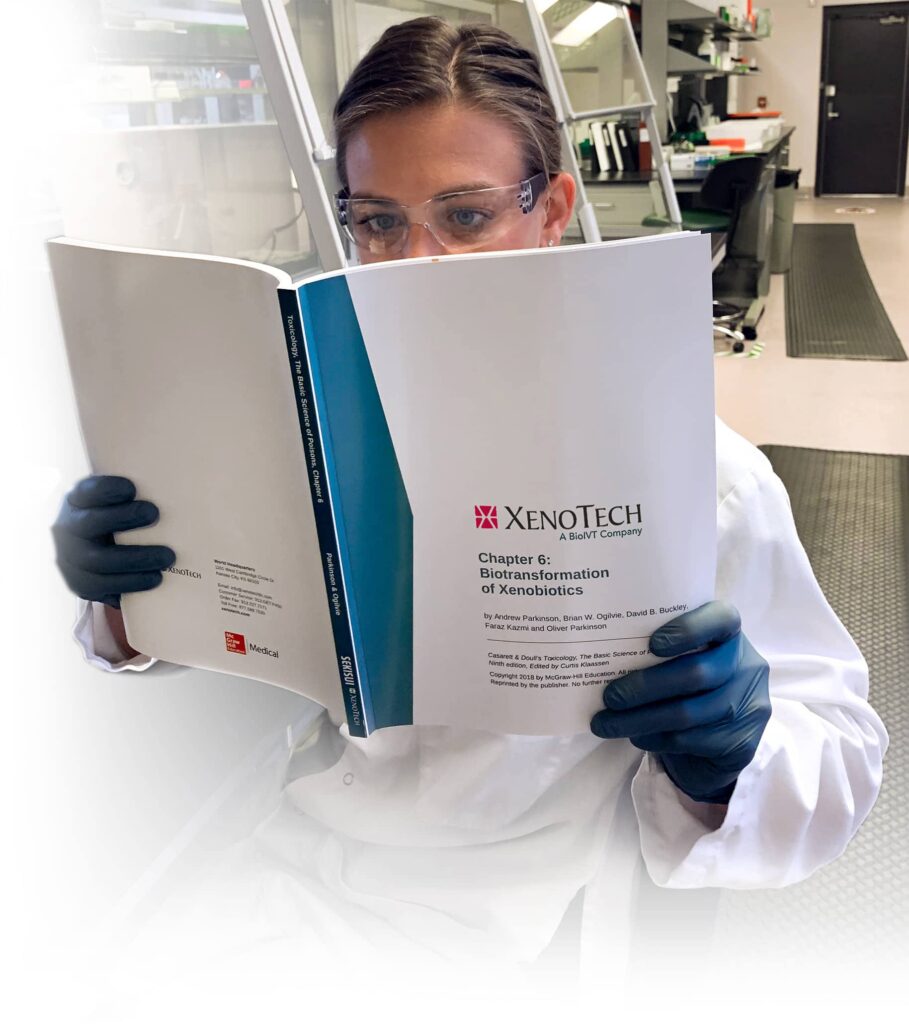
Underprediction of Drug Clearance by Aldehyde Oxidase (AO)–Mediated Drug Metabolism: Important Considerations for In Vitro Assessment
Presenter: Pallavi Limaye, Ph.D., DABT, XenoTech Director of Scientific Consulting
Abstract:
Aldehyde oxidase (AO) enzyme has gained increasing attention in drug development as one of the alternative approaches to reduce P450-mediated drug metabolism liability. However, clinical failure due to poor prediction of AO-mediated clearance is a major hurdle in development of drugs that are AO substrates. In vitro to in vivo extrapolation underpredicts AO-mediated drug clearance owing to several factors including lack of reliable representative animal models, marked species differences, significant inter-individual variability, substrate-specific activity, and discrepancy between absolute concentration and activity. To tackle these issues related to underprediction of AO-mediated drug clearance, in vitro tools to extrapolate in vivo clearance involving a yardstick approach are proposed. AO-metabolism is an attractive strategy to reduce P450-mediated drug metabolism liability but careful consideration of the unique challenges is essential.
Key concepts discussed in this webinar will include:
- Wide range of AO substrates – Functional groups
- AO substrate drugs that faced clinical failure unanticipated drug clearance
- Underprediction and Factors affecting AO expression
- Age, Disease state, Alcohol consumption, Pharmacogenomics
- Species differences
- Inter-individual variability
- Sample handling, Freeze-thaw cycles, Fresh vs. Frozen tissue
- In vitro AO inhibition and fm AO determination
- In vitro yardstick approach
About the Presenter:
Pallavi Limaye is a Director in the Scientific Consulting department. Pallavi received her Ph.D. in Toxicology from The University of Louisiana. Dr. Limaye originally joined XenoTech in 2011 as a Research Scientist and served as a study director for in vitro drug metabolism studies. In 2020, she joined XenoTech’s consulting team and provides input on drug-drug interaction study needs for sponsors. Dr. Limaye has published several original research articles in various journals and has also contributed many book chapters in the field of toxicology and liver pathobiology. She is also actively involved in scientific societies and currently serves on the E-Learning Subcommittee of The American College of Toxicology and is the current President of the Central States regional chapter of The Society of Toxicology.
